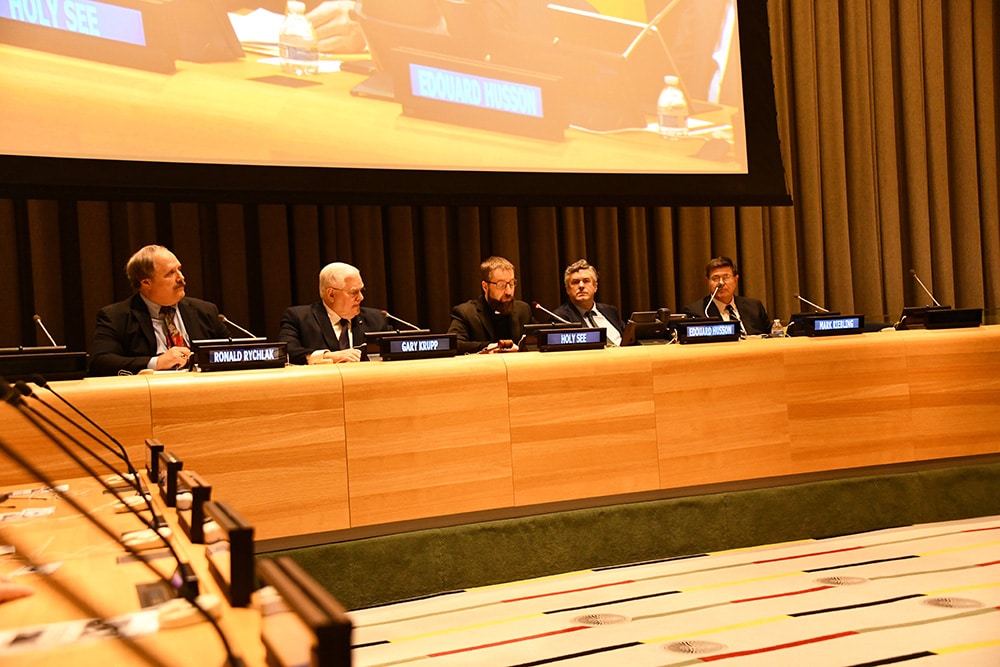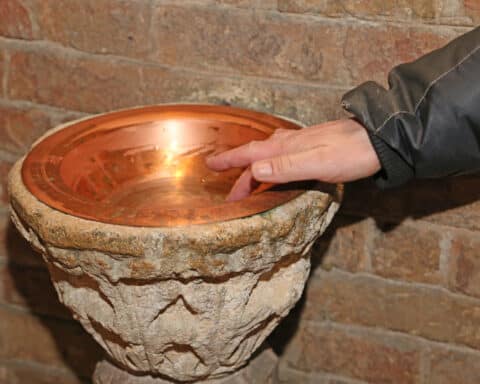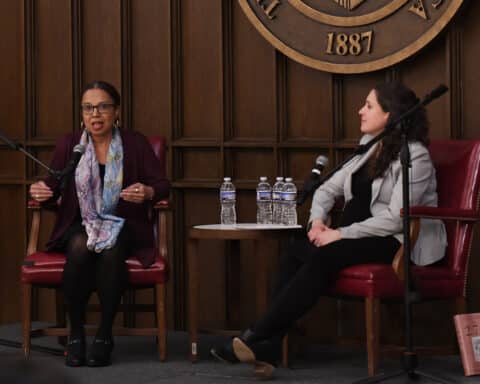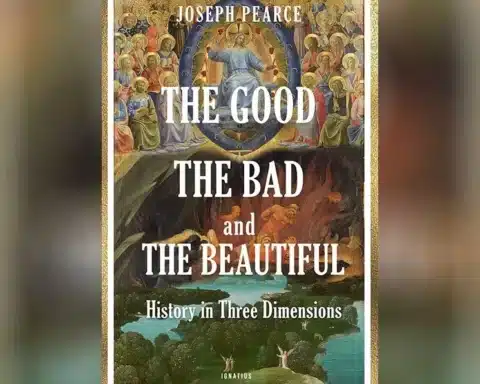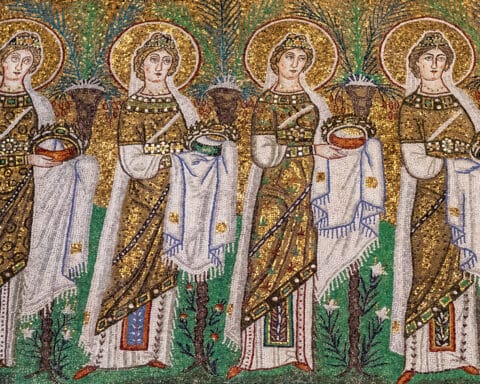Jan. 27 marked the 75th anniversary of the liberation of the survivors of Auschwitz in 1945, thanks to the Soviet Army, a few months before the collapse of the Nazi regime and the end of the Second World War.
Since then, numerous books, articles and essays have attempted to give insight into Pope Pius XII (1939-58), specifically his role and approach toward Nazism and the Holocaust.
“It’s time for the truth!” said Michael Hesemann, a German historian and author who spoke on the anniversary in Midtown Manhattan at the headquarters of the United Nations Trusteeship Council, one of the six principal organs of the U.N.
Since the resolution adopted by the U.N. General Assembly in 2005 established Jan. 27 as International Holocaust Remembrance Day, countless commemorations take place worldwide. But Jan. 27, 2020, marks the first time the United Nations hosted an event dedicated to “Remembering the Holocaust: The Documented Efforts of the Catholic Church to Save Lives.”
“When, finally, in March, the Vatican archives will open their files from Pius XII’s pontificate, there will be no excuse anymore,” Hesemann said. “The world has to recognize what this great pope did to save as many Jews as possible.”
Last year, Pope Francis announced that on March 2, 2020, all the Vatican’s archival documentation of the period from 1939 through 1958 will be opened, effectively making Pius XII’s pontificate accessible to consultation by researchers and scholars.
Yet this does not mean there was no documentation available, up to now, to show evidence of what Hesemann said: “Pius XII did only protest in general terms, but he had to remain careful to avoid that the Nazis learn about what he did behind the scenes.”
“Through more than 40 diplomatic interventions, by hiding thousand even in Rome and by getting as many visas as the governments of the world were willing to grant, he saved about 947,000 Jewish lives,” said Hesemann, who is a professor of History at the Gustav-Siewerth Akademie in Bierbronnen, Germany, and author of the book “The Pope and the Holocaust.” For this reason, he decries the “fake news” spread about “a saint pope, who only deserves recognition and gratitude and should be declared the patron saint for refugees and refugee helpers!”
Expressing gratitude
The event was sponsored by the Permanent Observer Mission of the Holy See and the Pave the Way Foundation, which was co-founded by its president, Gary Krupp. Krupp, who is Jewish, was only a child when Pius XII was pope. At the event, he recalled his commitment to clean up the image of Pius XII from the stains of the “black legend” of “Hitler’s Pope,” which painted him as silent while 6 million Jews were slaughtered.
“I believed as many fellow Jews in my generation did that in order to oppose communism, the Holy See was complicit with the Nazis,” he said. But “ingratitude,” he added, “is one of the worst character flaws a Jew can have.”
The main purpose of the Pave the Way Foundation is to eliminate “barriers of disinformation that serve to stoke distrust between religions.” Krupp explained that since 2006, the foundation “has devoted thousands of hours to unearth primary, sourced documentation to prove that the Holy See and Pius XII saved more Jews than all the world’s religious and political leaders combined.”
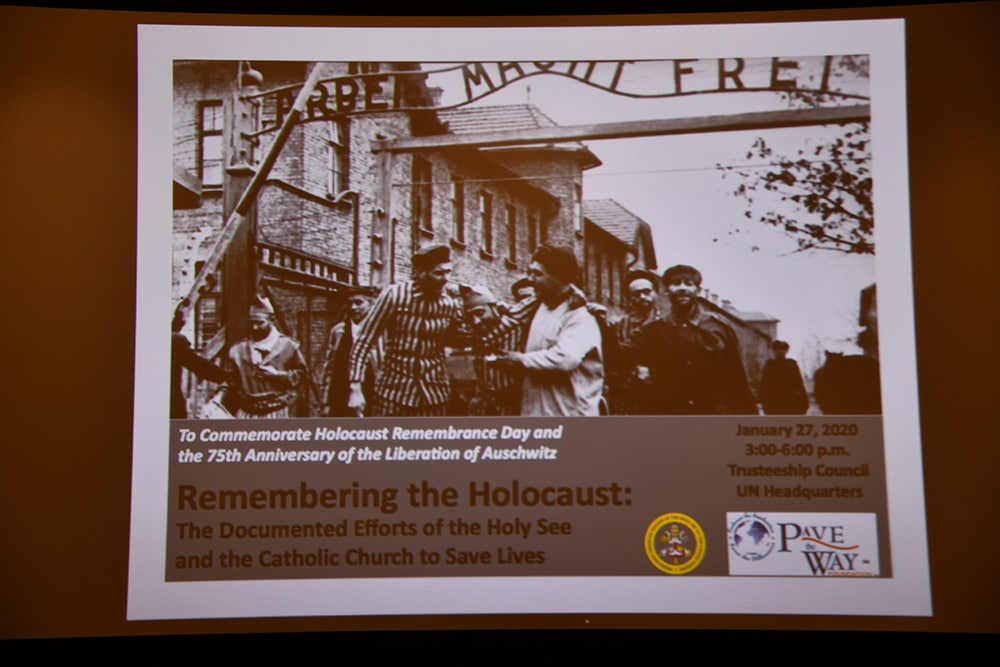
Thanks to the foundation, more than 76,000 pages of that documentation, along with eyewitness video interviews, are freely available online. Thus, “We are honored to have now the ability to discuss here the fruits of our labors,” Krupp added.
When Pope Francis announced the opening of the Vatican archives from the papacy of Pius XII on March 4, 2019, he said he was “certain that serious and objective historical research will succeed in evaluating in its proper light, with appropriate criticism, the praiseworthy moments of that pontiff,” because “the Church is not afraid of history.”
Looking ahead to that day, Johan Ickx, director of the historical archives in the Vatican Section for Relations with States, said the data already spoke for itself. Ickx focused on Rome and the famous Nazi roundup on Oct. 16, 1943, against Jewish inhabitants in Rome. “Before that round up, 1,323 Jews left their homes, and many were undoubtedly helped by Pius XII,” he said. Then, “of the 1,290 arrested and kept in custody, 249 were released thanks to the intervention of the Vatican, while 235 convents and monasteries served as hiding places for 4,205 Jews.”
“Altogether,” he calculated, “Pius XII can be credited, directly or indirectly, with the rescue of about two-thirds of the Jews who were present in the city on June 4, 1944, when Allied troops liberated Rome.”
Creative protection
Another panelist, Matteo Luigi Napolitano, professor of history of international relations at the University of Molise, Italy, shared evidence of counterfeited stamps and seals he found in his research. “In Italy,” he said, “some still closed archival collections have been labeled as ‘forms to counterfeit documents issued by fascist, Italian Social Republic.'” Many people in ecclesiastical institutions were incredibly creative, going as far as creating false Nazi documents and stamps in order to save Jewish lives.
“Many bishops and priests were involved in similar operations aimed at saving people from arrest or deportation,” he said, stressing they did this for Jews and people who were wanted by the Nazis or fascists “for whatsoever reason.” Without such creative protection, the scholar explained, these individuals were destined to die in the Nazi concentration camps.
Krupp’s father, Leonard Krupp, was one of the American soldiers who liberated the Buchenwald concentration camp near Weimar, Germany, in 1944. “He would show us gruesome or sad images when we were old enough to see them,” Krupp recalls. “‘Daddy,’ I asked, ‘why are you showing me these terrible pictures of these dead people?’ He answered, ‘So that we may never forget, and so that these things may never happen again.'”
“Today, we remember these atrocities,” Krupp said. “We remember those who liberated Auschwitz, and we remember with gratitude those, like Pius XII and so many faithful Catholic bishops, priests, nuns and laypeople, who risked so much to save Jews from the fate of the camps. They are the reason many of us are here now.”
Deborah Castellano Lubov writes from Rome.

